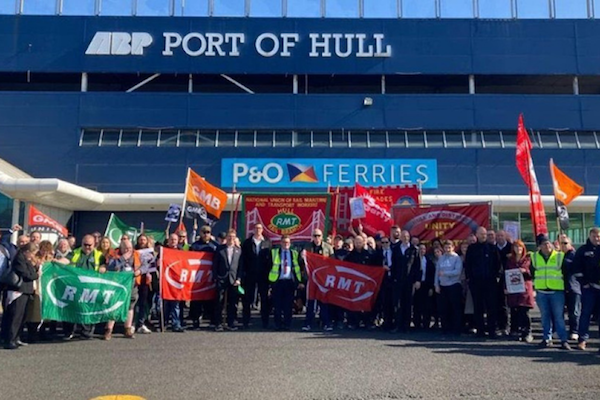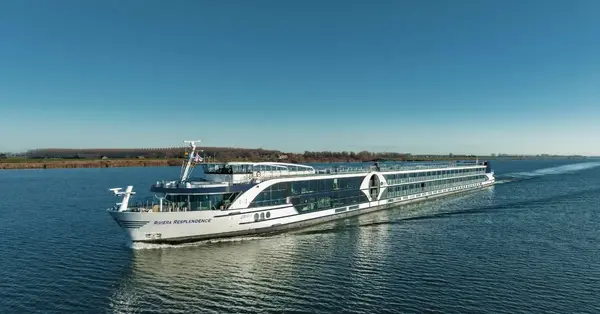You are viewing 1 of your 2 free articles
P&O Ferries sackings ‘last resort’ to save company, boss insists
P&O Ferries sacked almost 800 seafarers without warning as a “last resort” to save the company, its chief executive has told ministers.
Peter Hebblethwaite’s response came as it emerged that the staff made redundant will be offered a total of £36.5 million.
Some employees are set to get 91 weeks’ pay and the chance of new employment, and no employee would receive less than £15,000.
The firm, owned by Dubai-based DP World, denied breaking the law when workers were abruptly dismissed last week.
But the RMT union, which has been mobilising protests against the sackings, claimed the compensation package on offer was “pure blackmail and threats”.
The union said the “pay in lieu of notice is not compensation, it is just a payment staff are contractually entitled to as there was not notice given”.
In his letter, in response to a demand for a response to the sacking by 5pm on Tuesday by business secretary Kwasi Kwarteng, the ferry firm’s boss disclosed that the 786 sacked workers were employed by three Jersey-based arms of P&O Ferries.
The eight ships they worked on, which operate routes including Dover-Calais and Larne-Ciarnryan, are all registered in either Cyprus or the Bahamas.
Consideration was given to engaging seafarers via a third party provider but this would not have addressed the “fundamental challenges” of costs, flexibility and utilisation in the current crewing arrangements.
The option of following a formal consultation process was rejected by the company “as we took the view, in good faith that reaching agreement on the way forward would be impossible and against this background, that the process itself would be highly disruptive, not just for the business but for UK trade and tourism,” Hebblethwaite wrote.
In his letter, he said: “We know that for our people this redundancy came without warning or prior consultation, and we are painfully aware that this has caused distress for them and their families.
“Restructuring the workforce in this way was never a course of action that we ever wanted to take as an organisation – we did this as a last resort and only after full consideration of all other options.”
Hebblethwaite disclosed that the business “simply wouldn’t survive” without a fundamental change in crewing arrangements to bring it in line with the “vast majority of other international shopping operators, which in turn would inevitably result in redundancies.
“We saw no other viable means of preserving our iconic British business, saving the 2,200 remaining jobs it provides and protecting te 15% of Britain’s trade capacity it facilitates.”
He described the compensation package offered to the 786 affected employees as “very generous” and denied they were all dismissed by Zoom call.
A total of 575 seafarers affected were in discussions to progress with the severance offers.
“The teams accompanying the seafarers off our vessels were totally professional in handling this difficult task with all appropriate sensitivity and competency,” Hebblethwaite wrote. “Contrary to rumours, none of our people wore balaclavas nor were they directed to use handcuffs nor force.”
He insisted the company made all efforts to ensure everyone received the news directly on the day of restructure and not second and from others.
“All crew who were working that day were notified face to face and in person on board their vessels. For crew who were rostered off, live virtual meetings were held, but only 261 of our c.400 off-roster affected people were on those calls. Affected people were also individually contacted by phone, as well as email and text, with dismissal letters and severance terms also shared via courier and email.”


















